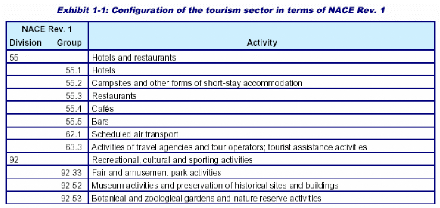2/ The travel industry specific features and the ICTs
impact
2.1 The travel industry value chain
Five main types of actors intervene in the traditional value
chain of the travel and tourism industry:
- The suppliers including airlines, transportation companies and
accommodation service providers
- The tour operators, whose role is to bundle the offerings of
the suppliers.
- The Global Distribution Systems (GDS) which are used by
other actors to manage prices and inventories in real-time. Amadeus, Galileo,
Worldspan and Sabre are among the most used Global Distribution Systems.
- The Travel agents who are playing the role of intermediaries.
They distribute travel products from
carriers, receivers and tour operators
to the final customer.
- The final customer or traveller.
2.2 Providing the overal travel experience
Tourism most specific feature is its various components which
are creating and delivering the overall "travel experience.' Along with
transportation, it includes such things as accommodations, food and beverage
services, shops, entertainment, aesthetics and special events. It is rare for
one business to provide the variety of activities or facilities tourists need
or desire. This adds to the difficulty of maintaining and controlling the
quality of the experience. To overcome this hurdle, tourism related businesses,
agencies, and organizations need to work together to package and promote
tourism opportunities in their areas and align their efforts to assure
consistency in product quality.
Tourism is usually defined as services for people travelling to
and staying outside their usual environment for not more than one consecutive
year for leisure or for business purposes. It covers four main activities:
- Transport
- Accommodation
- Restaurants
- Cultural activities and leisure

In spite of the fact that the tourism sector covers a wide range
of services, it corresponds to a range of NACE categories described in the
table below.
2 .3 The impact of the information and communication
technologies
Considering the so-called globalisation of our society and the
knowledge-based information structure of the economy, information and
communication technologies are tightly linked with tourism. In fact, since the
implementations of the first computerized reservation systems (early 1960's),
the tourism sector is one of the most extensive "user" of the information and
communication technologies (ICT). The gathering, processing and communication
of information is key to the sector.
The wide range of possibilities of action and approach made
available by the ICTs provoked a great change in the attitudes and behaviour of
both consumers and producers. Sophisticated software applications are
available, they are called: CRM (customer relationship management), SCM (supply
chain management), ERP (enterprise resource planning), and KM (knowledge
management). Nowadays, it obvious that any advanced and experienced
organization cannot survive, in our dynamic economy, without making a good use
of these techniques.
CRM seems to be the most important software application to be
used in the tourism sector. In combination with business intelligence software,
CRM software help firms to use more efficiently the information gathered about
their customers. The Analysis of transaction data, website visits, and
destination information usage allow to reveal behavioural patterns of tourist.
Consequently, the tourism managers can better meet their customers and thus
customize the offerings and services. This way it is possible to increase the
profitability of loyal returning tourists.
| 


